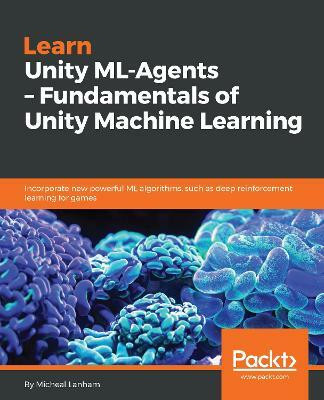Learn Unity ML-Agents - Fundamentals of Unity Machine Learning(English, Electronic book text, Lanham Micheal)
Quick Overview
Product Price Comparison
Transform games into environments using machine learning and Deep learning with Tensorflow, Keras, and UnityAbout This Book* Learn how to apply core machine learning concepts to your games with Unity* Learn the Fundamentals of Reinforcement Learning and Q-Learning and apply them to your games* Learn How to build multiple asynchronous agents and run them in a training scenarioWho This Book Is ForThis book is intended for developers with an interest in using Machine learning algorithms to develop better games and simulations with Unity. The reader will be required to have a working knowledge of C# and a basic understanding of Python.What You Will Learn* Develop Reinforcement and Deep Reinforcement Learning for games.* Understand complex and advanced concepts of reinforcement learning and neural networks* Explore various training strategies for cooperative and competitive agent development* Adapt the basic script components of Academy, Agent, and Brain to be used with Q Learning.* Enhance the Q Learning model with improved training strategies such as Greedy-Epsilon exploration* Implement a simple NN with Keras and use it as an external brain in Unity* Understand how to add LTSM blocks to an existing DQN* Build multiple asynchronous agents and run them in a training scenarioIn DetailUnity Machine Learning agents allow researchers and developers to create games and simulations using the Unity Editor, which serves as an environment where intelligent agents can be trained with machine learning methods through a simple-to-use Python API.This book takes you from the basics of Reinforcement and Q Learning to building Deep Recurrent Q-Network agents that cooperate or compete in a multi-agent ecosystem. You will start with the basics of Reinforcement Learning and how to apply it to problems. Then you will learn how to build self-learning advanced neural networks with Python and Keras/TensorFlow. From there you move o n to more advanced training scenarios where you will learn further innovative ways to train your network with A3C, imitation, and curriculum learning models. By the end of the book, you will have learned how to build more complex environments by building a cooperative and competitive multi-agent ecosystem.Style and approachThis book focuses on the foundations of ML, RL and DL for building agents in a game or simulation


